World-Renowned Violinist Marat Bisengaliev Brings Extraordinary Symphonic Concert Home
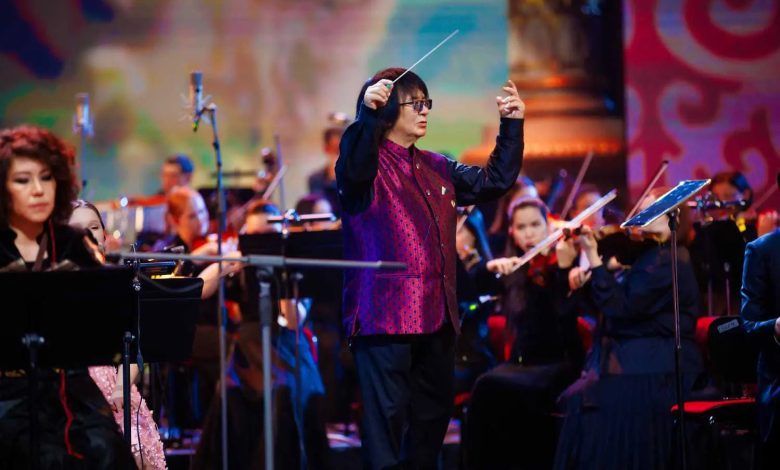
ASTANA – The grand stage of the Astana Opera welcomed Marat Bisengaliev, the world-renowned violinist, conductor, and Kazakhstan’s Goodwill Ambassador, for a symphonic concert blending classical and Kazakh music.
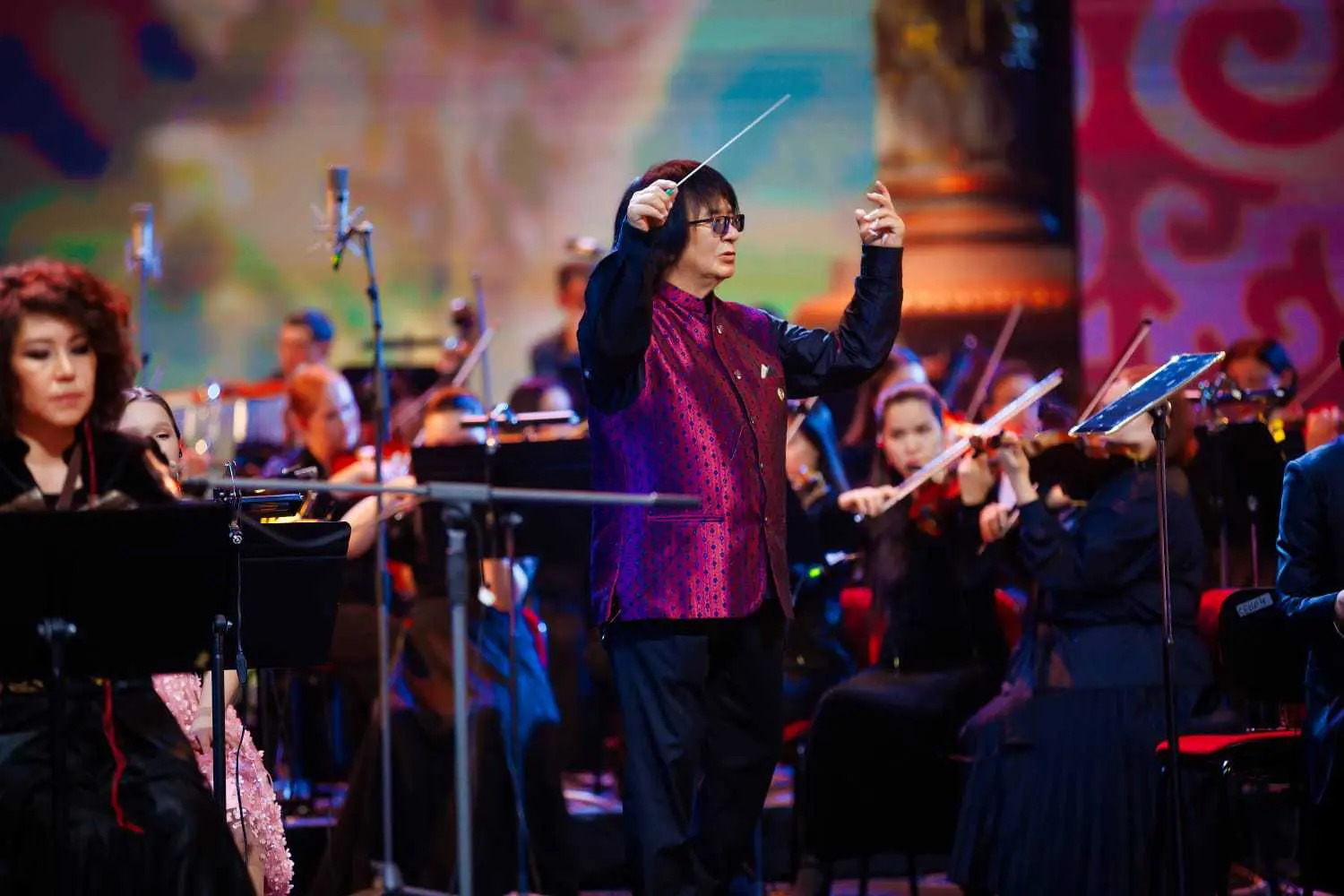
In June, Bisengaliev was named Kazakhstan’s Goodwill Ambassador, an award launched by the Kazakh Foreign Ministry to recognize and honor citizens who have made remarkable contributions to enhancing Kazakhstan’s image abroad. Photo credit: Astana Opera
Bisengaliev’s symphonic concert became a standout event for audiences eager to experience a unique musical vision crafted by one of Kazakhstan’s own. Born in 1962 in Almaty, Bisengaliev has made an international career as a violinist and a significant contribution as a conductor.
Bisengaliev presented an acoustic experiment, revealing his quadraphonic sound effect for the first time on home soil.
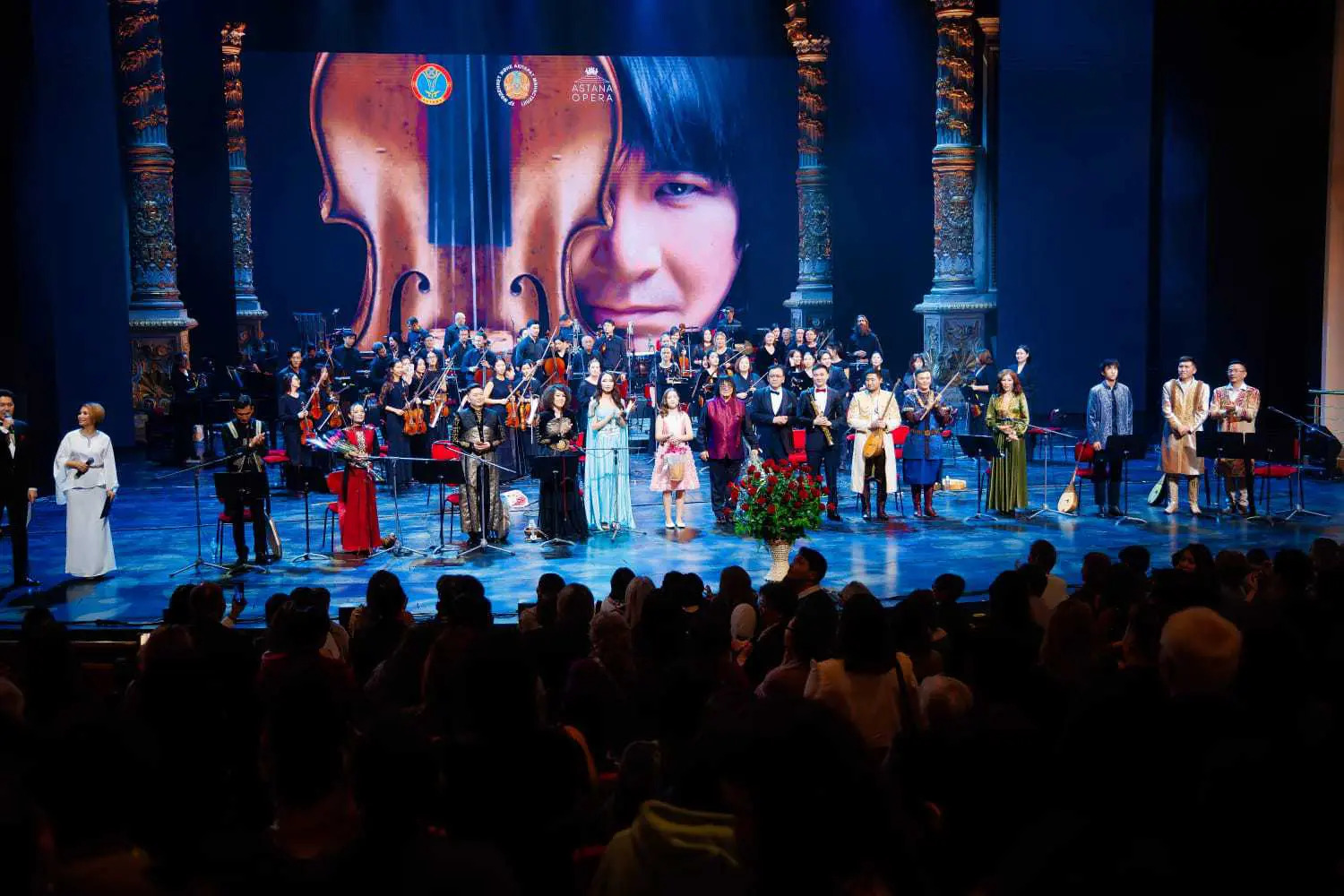
Besides founding several orchestras at home, including Altyn Alma in 1989, the West Kazakhstan Philharmonic Orchestra in 2003, and the Almaty Symphony Orchestra in 2012, Bisengaliev is also a founding music director at the Symphony Orchestra of India. Photo credit: Astana Opera
Separate groups of orchestra and choir members were positioned throughout the hall in specially designed acoustic zones, surrounding listeners in a holographic soundscape that heightened the emotional depth of the performance. This format, which Bisengaliev has developed, transformed the concert into a sensory experience.
“The main highlight of this orchestra is the quadrasound, which gives an opportunity for me to place musicians around the whole venue. We managed to place the choir on the balconies, the female [choir] on the right from me, and the male on the left. A little bit below, we had wind sections, and at the back, in the amphitheater, we had a heavy brass section. The main string orchestra and percussion were behind me,” Bisengaliev said in a comment for this story.
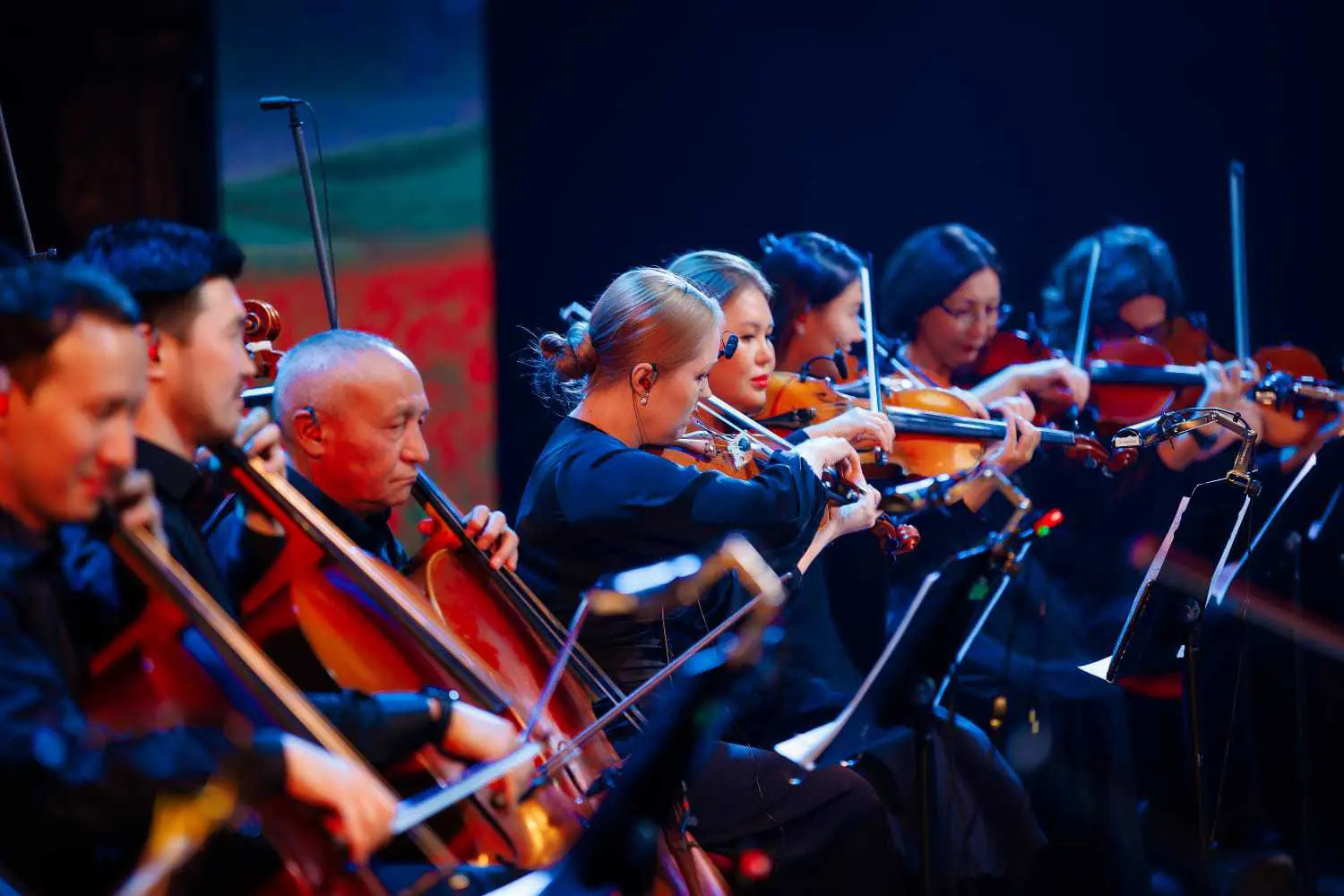
The orchestra performed works by British composer Karl Jenkins based on Kazakh music, which he wrote for Marat Bisengaliev. Photo credit: Astana Opera
At the heart of the evening were fragments from The Great Steppe Melody, a ten-part musical ode delving into themes that reflect the history, spiritual wealth, and cultural heritage of the Kazakh people. It draws from the works of legendary Kazakh composers Kurmangazy Sagyrbayuly, Abai Kunanbaiuly, and Nurgisa Tlendiev.
The repertoire blended iconic Kazakh compositions and other classics, including “Zhelsiz Tunde Zharik Ai” (A Bright Moon in a Windless Night), “Aittim Salem, Kalamkas “ (Sending Greetings to You, Kalamkas), “Karlygash” (Swallow), and “Dudarai.”
“But the very interesting part, of course, is the existence of a large group, mostly like a folk orchestra. This is something that the majority of people would think is an eclectic thing to marry two different completed types of musicians – the folk musicians with the symphony orchestra. But Karl Jenkins [renowned British composer with whom Bisengaliev has collaborated] has such a quality that he makes impossible things possible. This marriage actually worked very well,” said Bisengaliev, who performed solo as a violinist and conducted the orchestra.
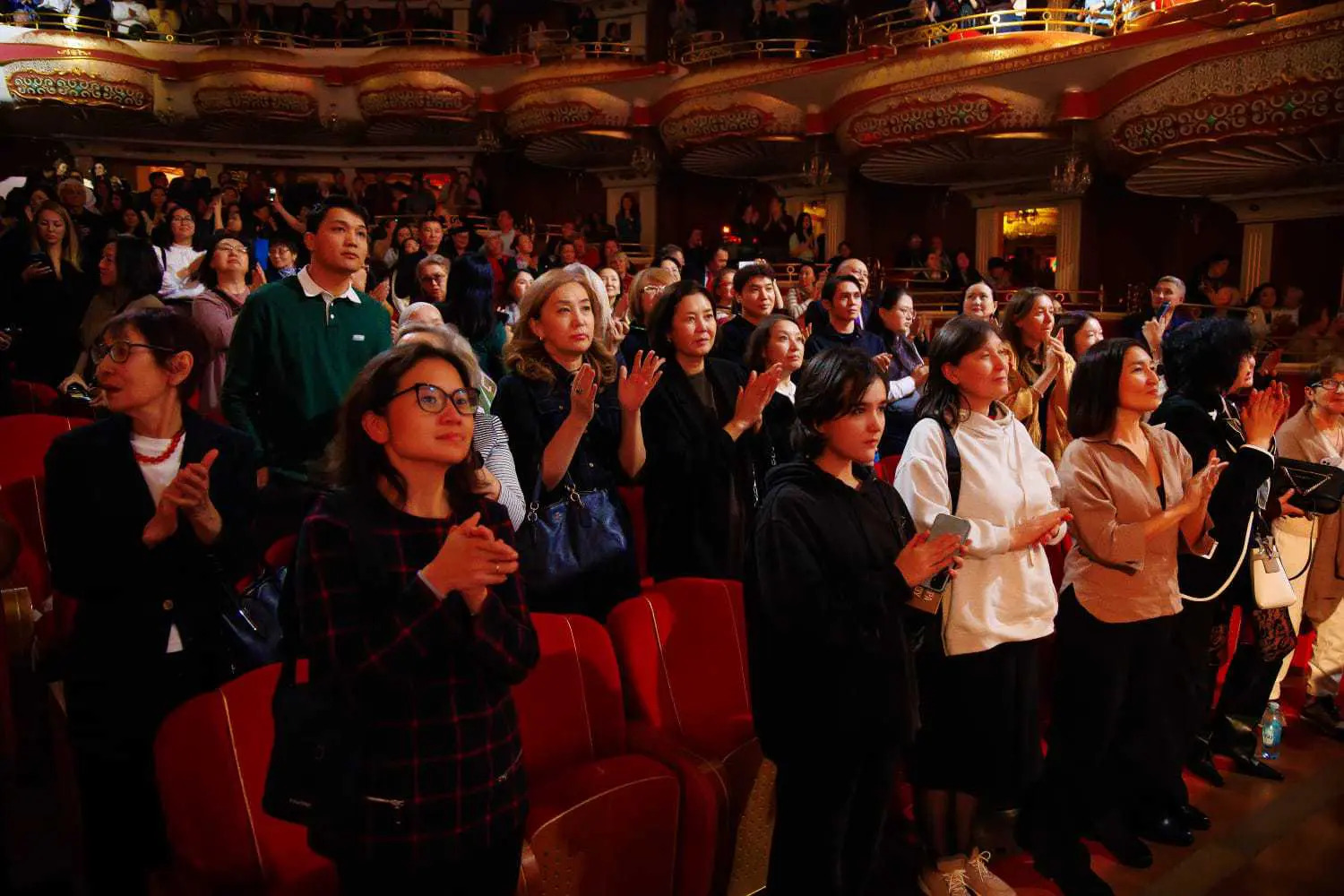
The audience welcomed the musicians with warmth and long-standing ovation. Photo credit: Astana Opera
Bisengaliev describes this blend as “very democratic.”
“I think the majority of people would love listening – whoever they are, whatever background they have, even those who never listen to classical music. I am also sure that this music would be loved by everyone,” he added.
The concert brought together a talented group of musicians, including saxophonist Arukhat Musayipov and multi-instrumentalists Serik Nurmoldayev, Anar Kasymova, Abzal Arykbayev, and Askar Soltangazin. Beimbet Demeuov led the choral sections performed by the Astana Opera Choir. Young vocalist Anna Yudenich, with her heartfelt tones, added warmth to the performance.

